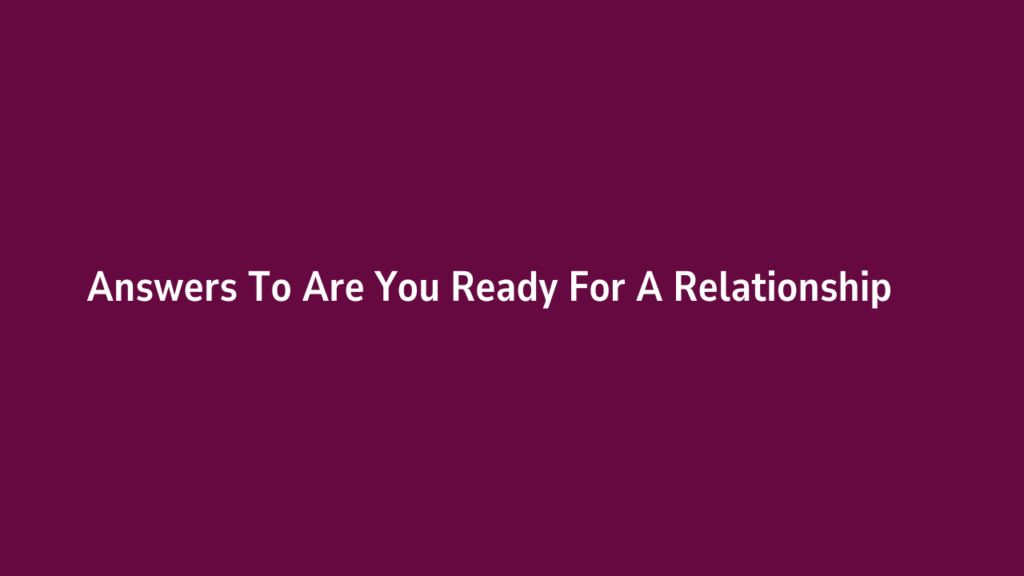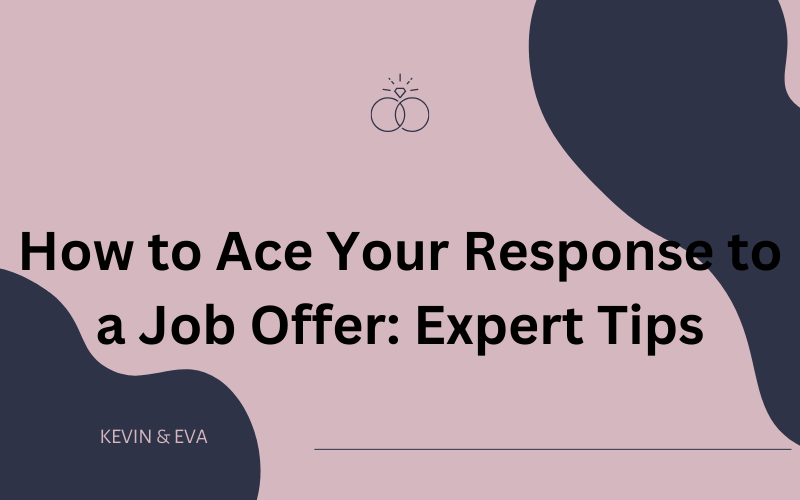When someone asks you, “Are you ready for a relationship?”, it can stir up a range of emotions, thoughts, and reactions. Whether you’re on a date, talking to someone new, or even having a deep conversation with a long-term partner, this question can be surprisingly tricky to answer. On the surface, it may seem like a simple yes-or-no question, but in reality, it’s much more layered. It touches on your emotional readiness, past experiences, personal goals, and your overall view of relationships.
In this blog post, we will guide you through how to understand the question, how to answer it honestly, and how to reflect on whether or not you’re truly ready for a relationship. We’ll break it down into different sections, addressing common concerns and providing insights into what the question really means.
Why Does Someone Ask, “Are You Ready for a Relationship?”
Before we jump into how to answer, let’s explore why someone might ask this question in the first place. Whether you’re dating casually or are already in a relationship, this question can be a sign of many things:
- Clarifying Intentions
- If someone asks, “Are you ready for a relationship?” they may want to know if you’re serious about the relationship or if you’re just looking for something short-term. It’s important to know whether both people are on the same page when it comes to expectations and future goals.
- Emotional Readiness
- Relationships require emotional investment, and some people ask this question to gauge if you are ready to commit emotionally to someone. This is especially important if there have been recent life changes, breakups, or if there’s been emotional baggage in the past.
- Assessing Personal Growth
- Sometimes, people ask this question to see if you’ve done the inner work to be a healthy partner. Are you in a good place emotionally, mentally, and physically? Have you taken the time to know yourself and your needs before jumping into a relationship?
- Exploring Compatibility
- In more serious relationships, this question can come up to explore whether both individuals are compatible and ready to take the relationship to the next level. For example, moving from casual dating to exclusivity, or from exclusivity to considering a future together.
How to Understand If You’re Ready for a Relationship
Before you answer the question, “Are you ready for a relationship?”, you first need to assess whether you feel truly prepared for one. It’s not enough to just say “yes” or “no”—you need to reflect on several factors in your life to understand your emotional readiness.
1. Self-Awareness
- Are you aware of your own needs, desires, and emotions? Being in a relationship requires understanding yourself first. If you’re unsure about your own values, goals, and what you want from a partner, it might be a sign that you’re not ready for a serious relationship yet.
2. Emotional Stability
- Healthy relationships require emotional maturity and stability. If you’re feeling overwhelmed with stress, anxiety, or unresolved issues from past relationships, this might hinder your ability to give yourself fully to someone else. Emotional readiness involves being able to handle the ups and downs of life without depending too heavily on a partner for support.
3. Time and Energy
- Relationships take time and energy. Ask yourself, do you have the time to invest in building a meaningful connection? If you’re constantly busy with work, school, or personal obligations, you may not be able to devote the attention a relationship requires.
4. Past Experiences
- Have you learned from your past relationships? If you’re fresh out of a relationship or have experienced trauma, you may not be ready to start a new relationship yet. Taking time to heal is important before jumping into something new.
5. Desire for Companionship
- Consider whether you want a relationship because you’re lonely or because you’re genuinely interested in sharing your life with another person. A healthy relationship stems from a mutual desire to grow together, not out of desperation or a need for validation.
How to Answer “Are You Ready for a Relationship?”
Once you’ve taken the time to reflect on your own readiness, it’s time to answer the question thoughtfully. Here are some possible ways to approach this question, depending on where you stand emotionally and mentally:
1. If You’re Not Sure Yet
If you’re uncertain about your readiness for a relationship, it’s okay to be honest about that. It’s better to admit that you’re unsure than to jump into something that might not be right for you.
- Answer Example:
“I’m not entirely sure if I’m ready for a full relationship right now. I think I still have some things I want to work on for myself, but I’m open to exploring where things could go.”
This answer shows that you are being honest about your current state and aren’t rushing into something you’re not prepared for. It also opens the door for future conversations.
2. If You’re Ready and Excited About the Idea
If you’ve reflected on your emotions and feel prepared for a relationship, express your excitement and readiness.
- Answer Example:
“I’ve thought a lot about it, and I feel like I’m in a good place now. I’m definitely ready to be in a relationship and look forward to seeing where it goes with you.”
This answer shows that you’re confident in your decision and open to a meaningful connection.
3. If You’re Not Ready
If after reflection, you realize that you’re not emotionally ready for a relationship, being honest and direct is the best approach.
- Answer Example:
“Right now, I’m not sure if I’m ready for a relationship. I think I need some time to focus on myself and grow before I can fully invest in something serious.”
This response is respectful, honest, and clear. It also sets boundaries, which is important for emotional health.
Key Factors to Consider in Your Answer
To help clarify your thoughts before answering, consider the following key factors:
1. Your Emotional Health
- Are you emotionally healthy and stable? Can you provide emotional support to a partner without relying too heavily on them for your own happiness?
2. Past Experiences
- Have you taken the time to heal from past relationships or heartbreaks? Jumping into a relationship too soon after a breakup can be challenging and unfair to both parties involved.
3. Personal Goals
- Do your personal goals align with being in a relationship? Are you currently in a stage of life where a relationship fits, or are your goals pulling you in different directions?
4. Desire for Commitment
- Do you truly want a committed relationship, or are you looking for something more casual? Understanding the type of relationship you’re interested in can help you answer the question clearly.
5. Communication
- Have you communicated your feelings openly with the other person? Being honest about where you stand and how you feel about the idea of a relationship is essential for building trust.
How to Approach the Question if You’re Dating Someone New
When you’re in the early stages of dating, this question might catch you off guard. Here’s how you can respond depending on your situation:
1. If You’re Still Getting to Know Them
- Answer Example:
“I really enjoy spending time with you, but I think we need to continue getting to know each other better before jumping into something serious. I’m open to seeing where things go.”
This answer indicates that you are not rushing into anything, but you’re open to future possibilities.
2. If You’re Interested in Exploring a Relationship
- Answer Example:
“I’m definitely interested in seeing where this goes. I’m not sure where we’ll end up, but I’m excited to explore a relationship with you and see how we grow together.”
This answer shows that you are open to a relationship but are taking things one step at a time.
What to Avoid When Answering the Question
While answering, here are some things you should avoid:
1. Being Vague
- Avoid giving a non-committal response like, “I don’t know,” without offering any context or explanation. This can leave the other person confused and unsure about where you stand.
2. Saying What You Think They Want to Hear
- Avoid answering just to please the other person. It’s important to be honest and true to yourself. Saying “yes” just to make them happy when you’re not ready can lead to misunderstandings and hurt feelings down the line.
3. Lying About Your Feelings
- Never lie about being ready for a relationship if you’re not. Honesty is key in any healthy relationship, and lying about your readiness can create problems later on.
Table: Pros and Cons of Being Ready for a Relationship
| Being Ready for a Relationship | Not Ready for a Relationship |
|---|---|
| Pros | Pros |
| – Emotional stability and maturity. | – Time for self-growth and healing. |
| – Willingness to invest in someone else. | – Clarity on personal goals and desires. |
| – Desire for deeper connections and commitment. | – Focus on other important aspects of life (career, self-care). |
| Cons | Cons |
| – May face challenges of balancing personal space with intimacy. | – Risk of loneliness or feeling disconnected. |
| – The vulnerability of opening up emotionally. | – Potential to miss out on good opportunities for meaningful relationships. |
| – Emotional dependency if not handled properly. | – May struggle with self-clarity in the long term. |
Final Thoughts
Answering the question, “Are you ready for a relationship?”, requires a deep understanding of your own emotions, goals, and personal growth. It’s important to reflect on your feelings honestly and take the time to determine whether you are truly ready for the commitment and emotional work a relationship requires. By understanding your own readiness, you not only prepare yourself for a healthier connection, but you also show respect to yourself and the other person.
So, whether you’re diving into the world of dating, or considering a relationship with someone special, take the time to honestly assess where you are emotionally. Your answer doesn’t just affect your present, but also the future of your relationships.



